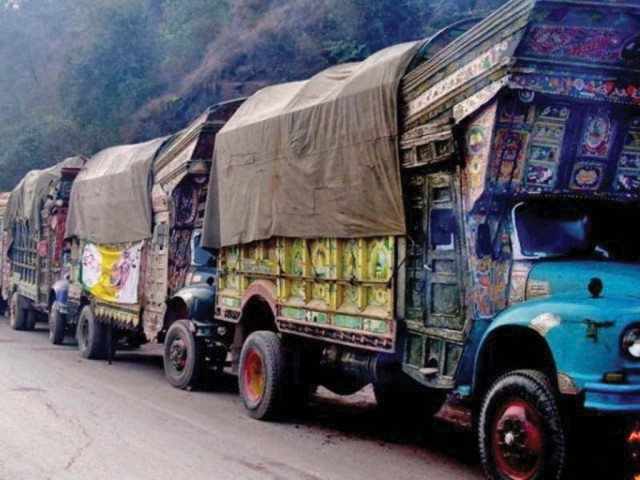South Asia still backward and least integrated
Leadership should show strong political will to fully operationalise SAFTA

Safta is the only way through which trade can be increased from a stagnant 5% to a considerable level. PHOTO: FILE
The South Asian leadership needs to show a strong political will to fully operationalise the South Asia Free Trade Agreement (Safta) by evolving standard trade procedures, which is the only way to increase the volume of trade from a stagnant 5% to a considerable level.
South Asia connectivity: Sustainable transportation, logistics corridors stressed
These were the views of speakers in augural sessions at the 8th South Asia Economic Summit titled “Regional Cooperation for Sustainable Development South Asia”, organised by the Sustainable Development Policy Institute (SDPI) here on Monday.
Speaking at a session on the corridors for development, Federal Planning, Development and Reform Minister Ahsan Iqbal said there was hope about melting of the ice between India and Pakistan following the two prime ministers meeting on sidelines of the Climate Change Summit in Paris earlier this week, and the subsequent meeting of security advisers of both countries in Bangkok.
He highlighted the reasons for which 80% of the $46 billion investment in the China-Pakistan Economic Corridor was focused on power and energy projects.
Pakistan leveraging US and China’s interest in the region
Pakistan’s investment would increase regional cooperation via economic and development corridors, he said, adding “corridors are the future for South Asian countries, which contribute only 3% of the global GDP and 40% of its population lives below the poverty line.”
Earlier, SDPI Executive Director Dr Abid Qaiyum Suleri said this summit was a perfect representation of the South-South and North-South cooperation. He said South Asia was a region with multiple inter-state and intra-state conflicts and finding an opportunity for public thought leaders to objectively discuss the regional issues is a big success.
“We have been long on words and theories but short on action and implementation, the time to act has been fast passing but all we have done so far is to wait, procrastinate and delay,” Suleri said.
Pakistan has shut market access routes for itself
World Bank Chief Economist of South Asia Region Martin Rama said South Asia can build upon past successes such as the Indus Waters Treaty as well as common culture to overcome the trust deficit in the region.
Published in The Express Tribune, December 8th, 2015.
Like Business on Facebook, follow @TribuneBiz on Twitter to stay informed and join in the conversation.



















COMMENTS
Comments are moderated and generally will be posted if they are on-topic and not abusive.
For more information, please see our Comments FAQ